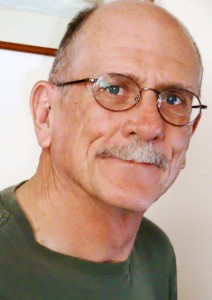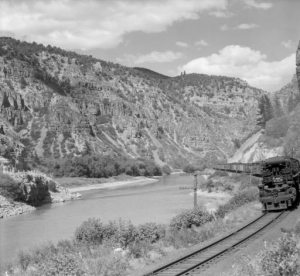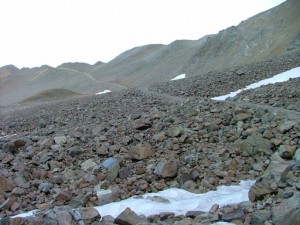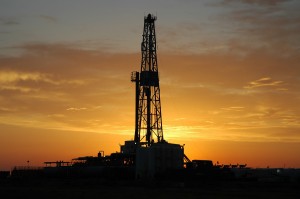 The United States is experiencing an energy boom. Oil and gas production is steadily growing, mostly due to new technology in use in older oil fields that were once regarded as exhausted, and development of new areas like the Williston Basin in North Dakota and the Marcellus shale in Pennsylvania. Here in Colorado, the boom-bust economy of the Western Slope experienced a major boom. In the Denver Basin, mostly in Weld county, drilling has increased dramatically.
The United States is experiencing an energy boom. Oil and gas production is steadily growing, mostly due to new technology in use in older oil fields that were once regarded as exhausted, and development of new areas like the Williston Basin in North Dakota and the Marcellus shale in Pennsylvania. Here in Colorado, the boom-bust economy of the Western Slope experienced a major boom. In the Denver Basin, mostly in Weld county, drilling has increased dramatically.
Why this oil and gas boom when just a few years ago, oil and gas production had been declining for years. Fracking, where a well is driven down into petroleum-bearing strata once regarded as unproductive because the rock was not porous enough to allow the petroleum to flow into the well, can now become productive when the rock is hydraulic fractured by pumping water under tremendous pressure into the rock layers. The rock breaks, and the sand and chemicals hold the fractures open enough to allow the oil and gas to migrate into the drill hole.
Fracking is not new. I am from Western Colorado, and in the 1950’s the region experienced a double boom. The government needed uranium to build bombs, and oil and gas were in great demand. My paper route doubled with all the new people moving in for good-paying jobs. Fracking was in use then, but had limitations as the amount of rock broken around a vertical drill hole was limited. Today, however, that has changed because of horizontal drilling, where a well is drilled into the desired rock layer then the drill makes a 90-degree turn and drills horizontally, increasing the amount of rock in that layer that can be fractured.
The result of this technology is that the U.S. is moving toward energy independence. Our dependence on the Middle East for oil is almost gone. New jobs are being created, oil prices have stabilized, and a new energy era has dawned.
All good, right? No. There is always a cost. Fracking requires water. Millions of gallons of water are injected into the earth. Some comes back up, but it is dirty stuff that sometimes is cleaned up, sometimes not. Here in Colorado water is a scarce resource, and most of the water used in fracking is lost.
The oil rigs need roads and solid pads for the equipment. Well-developed oil fields are a maze of roads and pads that have no other use. I became aware of the damage flying over the overthrust belt in southern Wyoming. The land in that arid region will be scarred, and wildlife habitat reduced, for centuries.
The cost most people are concerned about is the pollution around the wells. Lighting the gas coming out of the water tap in the kitchen sink is the most publicized problem. Odors, toxic fluids coming out of the wells, air pollution, and an increase of respiratory illness near the wells are all of concern. The result is there is a great deal of opposition to fracking. In northern Colorado, several cities have banned fracking, with the oil and gas industry engaged in a major political battle.
All this opposition is the oil companies’ fault. There is a huge amount of money to be made from the oil and gas produced by fracking, and the drillers are working as fast as they can to make that money. In the process, they cheat. There are proven means to prevent any unwanted gasses and fluids from migrating to the surface around a well. Good well casing practices, assuring there is an impervious layer of rock above the fracture zone, and well-placed concrete between the well casing and the surrounding rock. All this casing and concrete is expensive, and in a mile-deep hole in the ground. So, cheat. Use rotten casing, less cement, and loose strata above the production layer; all lead to environmental damage at the surface when the well leaks. The damage does not have to happen.
Just as fracking technology is well-developed, the means of protecting the area around the wellhead are available. The key is requiring the drillers to use those means. It is not enough to pass laws saying don’t do it. It takes monitoring with enough inspectors on site to assure proper practices are followed. The monitoring can be funded by a tax on production. (The producers cheat at production figures as well). The result can be more jobs and safe oil and gas production.
Here in Colorado, with a Governor familiar with the oil and gas industry and a good political climate, solid regulation can happen. In Texas, however, the oil industry has controlled the state government for many years. Lots of folks stand to get sick there, and massive amounts of greenhouse gas are entering the atmosphere. With widespread public outcry about the environmental damage, the political climate may change enough to allow good governmental regulation.
The real solution to our global warming and climate change problem is to end the use of hydrocarbons we dig out of the earth. Coal, oil, and natural gas have to go. This is not going to happen soon. We can, however reduce the impact by moving from coal to natural gas as fuel in power plants. This has happened in Colorado, but huge amounts of coal still go to power plants in the south and east. More natural gas production can reduce coal consumption. The plants will still pollute, but at a lower amount. Fracking is the means. The next step is to accelerate our transition to renewal energy sources.
Fracking, if done properly with a good regulatory structure, can reduce our dependence on the Middle East for oil, and can reduce domestic coal use. There will be less environmental damage, and the economy will benefit. All we need is less hysteria and good regulation.
Here is a letter to the editor from The Denver Post 2-21-14 on fracking.
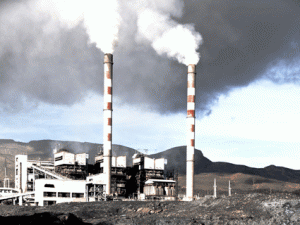 After WWII, a lot of research was done examining propaganda techniques. The impetus was how Nazi propaganda was used to control the German people. A major technique is The Big Lie: take an obvious falsehood, such as the international Jewish Conspiracy, and repeat it so often that the citizens start believing in it.
After WWII, a lot of research was done examining propaganda techniques. The impetus was how Nazi propaganda was used to control the German people. A major technique is The Big Lie: take an obvious falsehood, such as the international Jewish Conspiracy, and repeat it so often that the citizens start believing in it.
